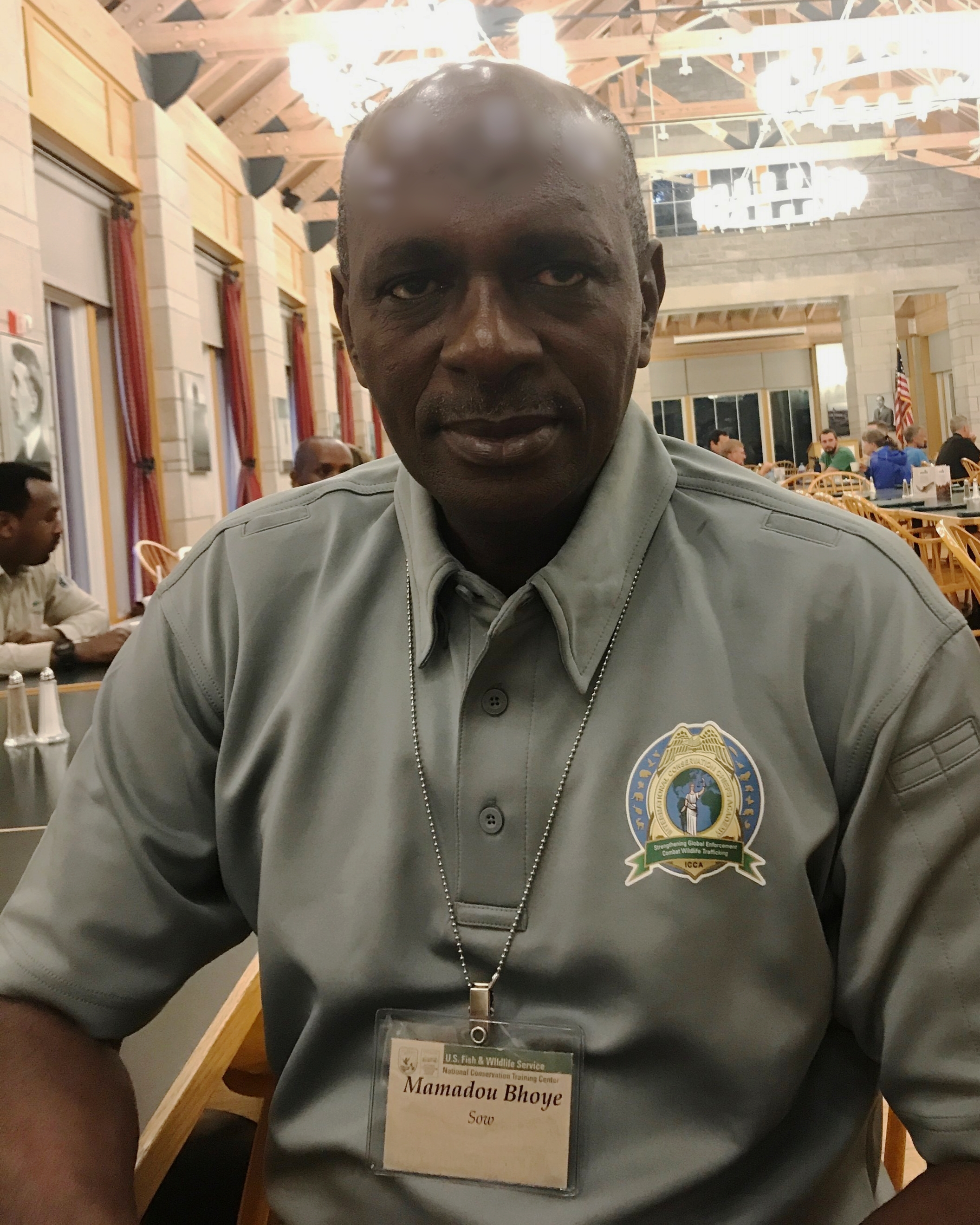National Conservation Training Center, Shepherdstown, West Virginia --- Roberto Oliva, forester, lawyer and executive director of ASEAN Centre for Biodiversity (https://aseanbiodiversity.org ), has learned how to work with courts to prioritize the enforcement of environmental rules: educate them about the importance of protecting wildlife and the environment and how its in everyone’s best interest to protect natural resources. “When officials in the justice system realize how important it is it to protect our natural resources, they prioritize environmental cases” Oliva said.
Oliva explained his experience to 42 African conservation officials from 17 African countries attending the International Conservation Chiefs Academy. The goal of the ICCA is to build relationships by strengthening global law enforcement relationships to help them fight illegal wildlife trafficking that is decimating wildlife and breeding organized crime that can destabilize governments.
In the 1980s and 1990s when Oliva and environmental lawyers filed cases, the cases were often dismissed by judges who viewed environmental crimes as merely “petty crimes”. Judges were not very friendly toward environmental cases and often scolded the prosecuting attorneys or allowed plea bargains with lesser penalties. Violators were then released and they continued to commit more wildlife, environmental and natural resource crimes.
Illegal logging was rampant in the Philippines during the 1990s, as the country was a major exporter of logs without oversight of local environmental departments. Eventually citizens realized that forests were beginning to disappear and began to experience the adverse impacts of deforestation. In 1992, groups including national and local governments, churches, police, women’s organizations, businesses and others came together to call for environmental protection from at the grassroots level.
They began formal training of prosecutors and judges on environmental laws and brought the courts to the jungles to see the damages being done.
In another turning point, the Supreme Court in the Philippines ruled that a balanced and healthy environment is the right of all people, including those yet unborn. In 2009 environmental courts were established and special prosecutors now focus on environmental crimes.
Additionally, new rules now allow citizens to file cases for environmental problems, and courts can issue a temporary restraining order to stop any further damage until the case is decided.
“We have lost so much in nature, but if man is the problem, man should also be part of the solution,” Oliva said. “Prosecutors are now environmental champions.”
Natercio Ngovene, law enforcement coordinator at Maputo Special Reserve in Mozambique, reaffirmed Oliva’s experience of taking prosecutors and judges to see the damages to the environment.
“Judges and prosecutors didn’t see the poaching that was going on as an important problem, but it was destroying the environment,” Ngovene said. “I took a judge out to see the slaughter of animals, and afterwards she instructed me that when we had a poaching case to be sure to bring it to her.”
The opportunity to make change, said Oliva, is up to average people to begin asking for change.
The ASEAN Centre for Biodiversity includes the countries of Brunei, Cambodia, Laos, Indonesia, Malasia, Myanmar, Philippines, Singapore, Thailand, and Vietnam. The mission of the ASEAN Center is to effectively facilitate regional cooperation and deliver capacity building services to Asian Countries in conserving biodiversity.
The International Conservation Chief’s Academy (ICCA), is jointly coordinated by U.S. Fish and Wildlife Service Office of Law Enforcement, the National Association of Conservation Law Enforcement Chiefs, and the and the U.S. State Department’s Bureau of International Narcotics and Law Enforcement.









